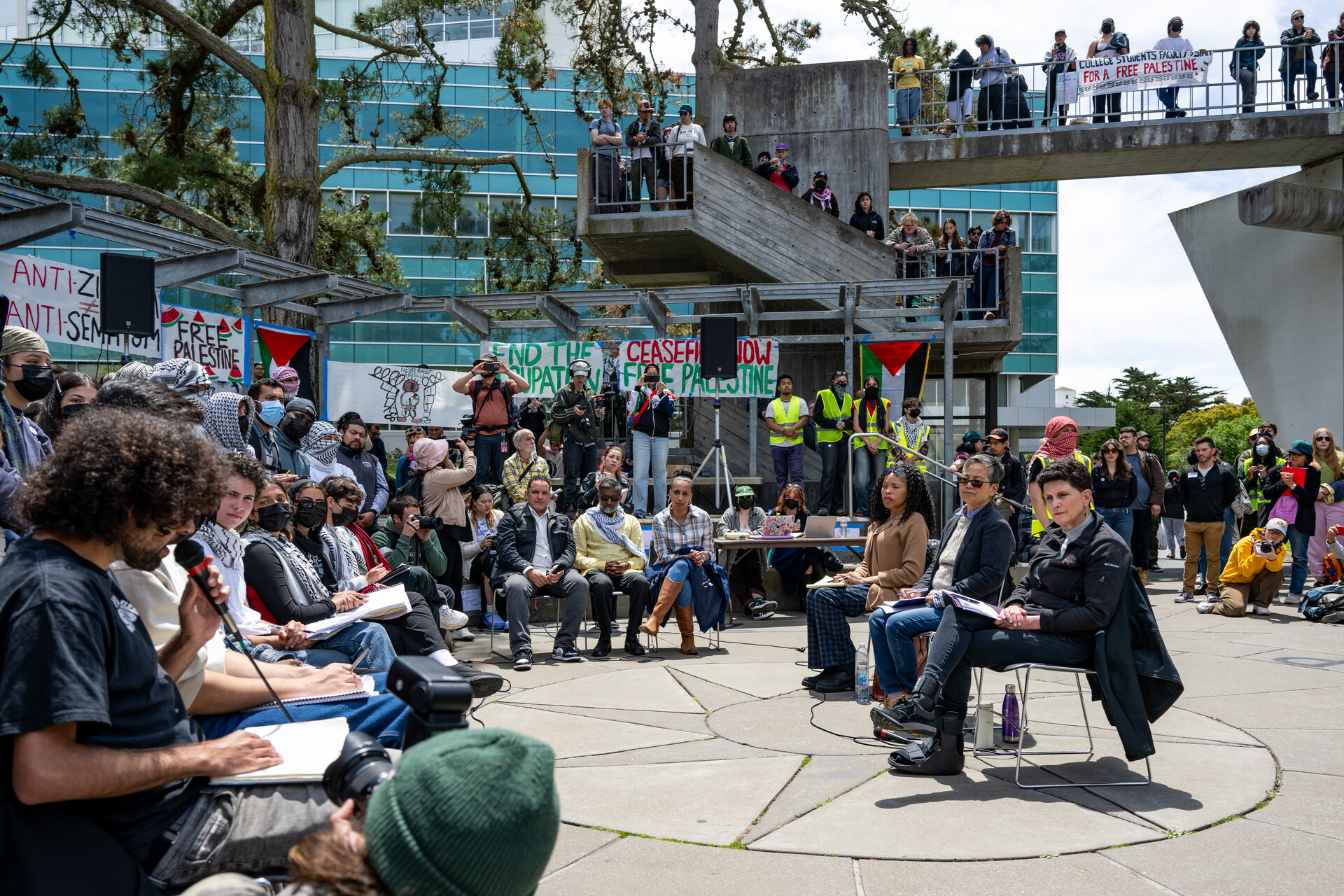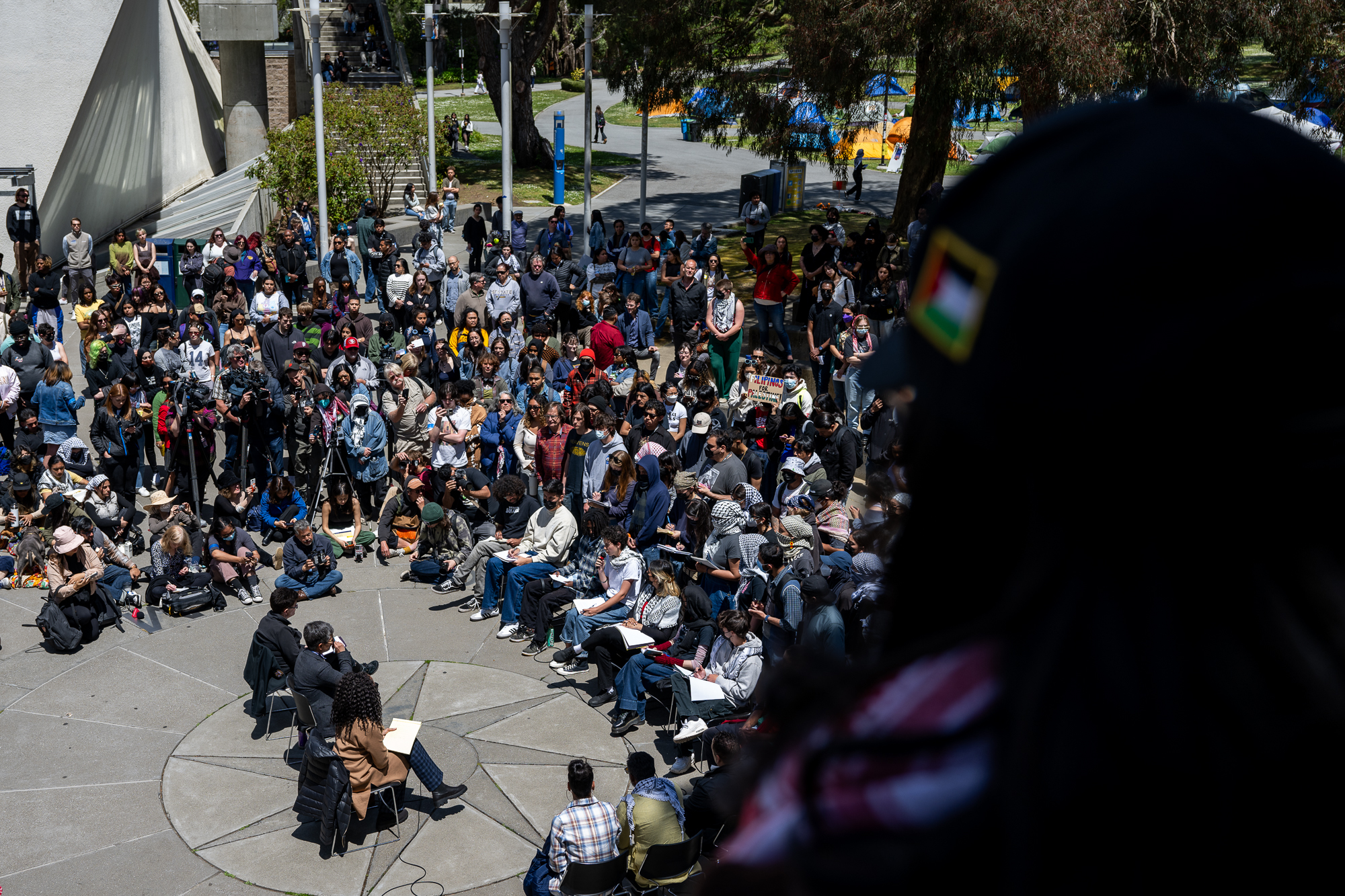Amid a wave of student protests that has spurred attacks and arrests on other California campuses, San Francisco State University’s top administrator met publicly with pro-Palestinian student protesters for the first time Monday to discuss their demands as news spread of a cease-fire proposal in the Gaza Strip.
The “moderated, open negotiations session” between President Lynn Mahoney and representatives of the SFSU Students for Palestine Encampment is believed to be one of the first of its kind, student organizers said. It came as Israel launched strikes in Rafah after saying the terms of a cease-fire deal agreed to by Hamas were not acceptable, NPR reported.
“If the cease-fire is true and it happens and, you know, there’s a free Palestine – because that’s what we’re reaching towards – of course we’re going to be relieved and we’re going to be happy, but at the same time we lost a lot,” said Monia Alsena, 22, who graduated from SFSU last year and attended Monday in support of the protest encampment.
“I wish it was a permanent cease-fire,” said her friend Nermeen Elsaghir, 23, who is graduating this month and has family in the West Bank. “I wish it was freedom for Palestinians, for all of us.”
Still, Elsaghir said she is “not very hopeful about having any kind of victory soon for Palestinians or a cease-fire. We’re helpless, and our leaders, especially Arab leaders, they’re not doing anything. It’s very sad.”
“I don’t see how I’m hopeful,” she said. “I’m not.”



